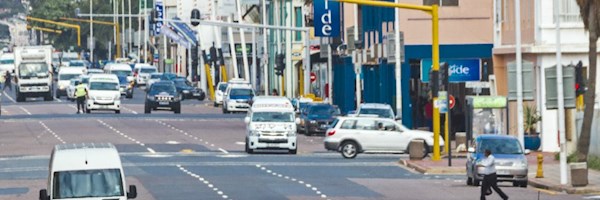Property owners in the Durban CBD are addressing the affordability challenge that faces many prospective tenants in their area – and reconfiguring the inner city rental market in the process.
That’s the word from Andrew Schaefer, MD of national property management company Trafalgar, who says an increasing number of landlords in Durban are now converting their rental apartments to provide separate rooms-to-let with shared kitchens, bathrooms and common rooms.
“They are responding to huge demand for this kind of accommodation, at monthly rentals of between R1800 to R2500 a room, not only from students but also many young people with their first jobs and from others who have homes elsewhere but want an inexpensive place to stay close to work in the city centre during the week.”
He says tenants like this generally cannot afford two and three-bedroom apartments in the CBD at rentals ranging from R4500 to around R8500, so what they have tended to do is rent rooms from existing tenants in such apartments. This has frequently given rise to uncontrolled sub-letting, overcrowding and all the accompanying social problems.
“Now, however, properly divided apartments are providing benefits for all. The property owners are able to prevent illegal occupation of their premises by unauthorised sub-tenants, while the tenants are protected against exploitation by slumlords.
“Each room tenant has a separate and legal lease with the legitimate owner of the property and in many cases, the rooms even have their own prepaid electricity meters. Any shared costs such as water and electricity for the kitchen, and how these are to be divided, can be stipulated in each tenant’s lease.”
Schaefer says this type of initiative could be viewed as a blueprint for residential property owners in other inner-city areas and CBDs where there has a been a spike in apartment vacancy levels in recent years corresponding to declining affordability levels among those who wish to live there.
“This is a way for property owners in these areas to achieve a ‘meeting of minds’ with their prospective tenants and achieve much higher occupancy levels, while the tenants get the clean, safe and secure accommodation they want at an affordable price. Apartments and buildings are much less likely to get hijacked in such conditions and the city itself is likely to benefit from more regulated letting and lower defaults on utility payments.”
He notes that a pilot project by Trafalgar has already proved the demand for rooms-to-let in Johannesburg as well, and that the group is happy to advise property owners and developers who would like to convert their apartments.

